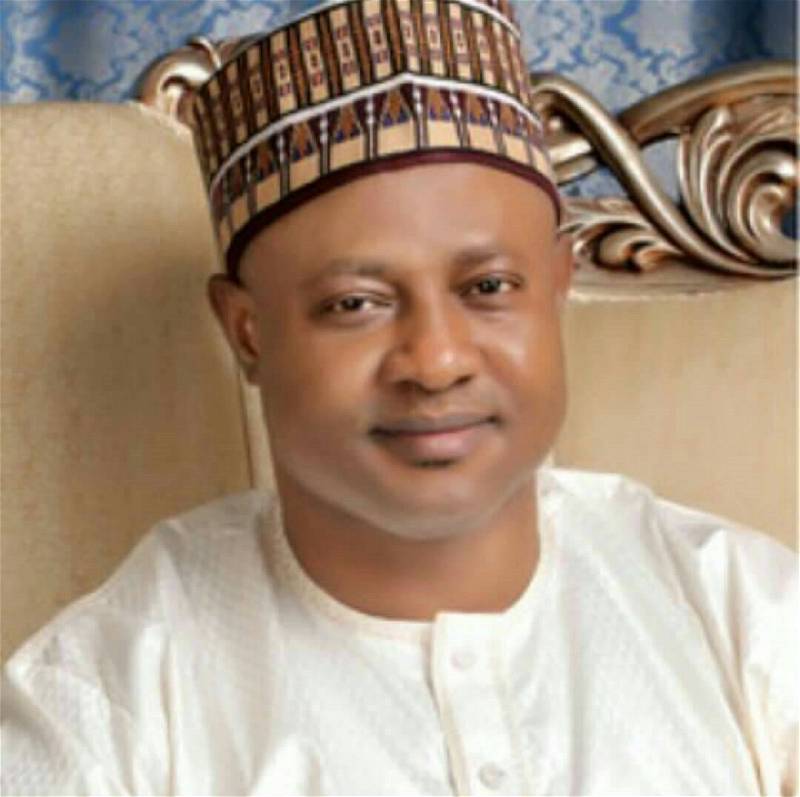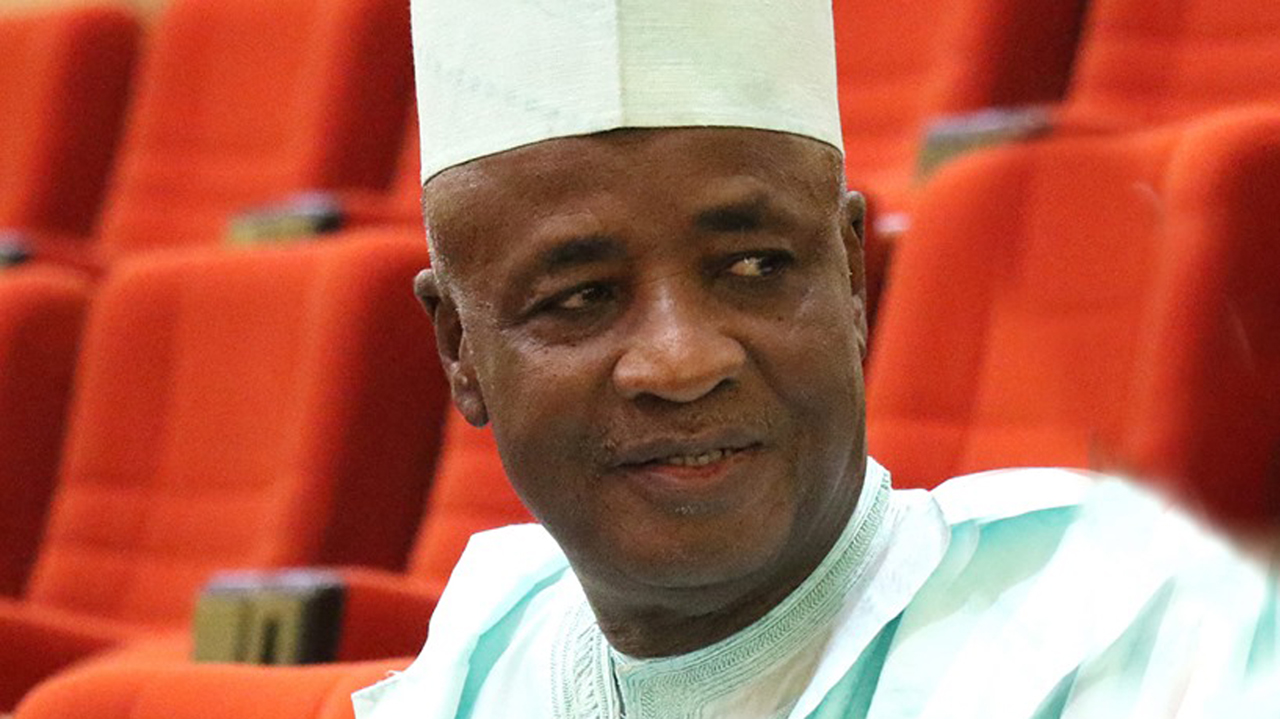By Emmanuel Ado
“In war you can be killed only once.In politics,many times” – Winston Churchill
Mallam Nasir El-Rufai, the Executive Governor of Kaduna State true to the words of Winston Churchill has been murdered several times over by political opponents and would still be savagely murdered several times over in the coming days,weeks and months as politicking in count down to the 2019 elections becomes more intense and savage – that is generally the ugly nature of politics. Were it to have been a civil war, El-Rufai would have been killed just once with a bullet straight to his head and consigned to history. But he continues to trudge on, in spite of the vicious attacks, some which are beyond comprehension, to be killed over and over again.
Considering the well coordinated attacks that he is subjected to daily from very formidable enemies – some of whom he unwittingly made in the course of public duty while occupying the various positions that he has held from 1999 to date and others which he inherited by association, it is a miracle that Mallam Nasir El- Rufai is still standing. For instance, the ‘Akida Group’ in the Kaduna State APC are opposed to him, because of his preference for Jimi Lawal, a Yoruba man, over them the ‘real indigenes’. The jury is still out on whether it is El- Rufai himself that courts trouble or trouble itself that courts him, but one thing that is certain is that he seems a hugely misunderstood man.
From the very outset it was clear that Nasir El- Rufai, was not going to be a ‘routine’ governor – the kind that will celebrate payment of salaries, leave grants, pensions and construction of roads as achievements. He was going to be fundamentally different, and has indisputably lived up to that expectation. He has shaken up things and governance in Kaduna State will for certain never be the same again. This is at the root of the crisis between El-Rufai and the ‘traditional rent-seeking politicians’, who are so used to contracting as the sole purpose of being in government that they can not make sense of the reforms under way in Kaduna State.
Since 1999, a second term in office has not always been a walkover for any incumbent governor of Kaduna State. Alhaji Ahmed Makarfi faced serious challenges from Alhaji Suleiman Hunkuyi- the very same person warming up to challenge El- Rufai today. There was also Alhaji Yusuf Hamisu aka Mairago. Alhaji Makarfi was accused of all manner of crimes, including ‘chopping alone’ as well as being accused of being pro-Southern Kaduna, which earned him the nick-name Pastor Micheal. He was not accused of poor performance, which by the way, is never an item on the agenda of political middlemen. Alhaji Namadi Sambo and his godson Alhaji Ramallan Yero – unarguably the worst governors performing the state has ever produced faced similar challenges from the politicians who felt neglected. For this category of political merchants, performance or lack of it is solely dependent on the patronage dispensed to them – the “K.O. is O.K philosophy”.
Not many people remember the famous “K.O is not OK” headline in the Daily Times of yesteryears. K.O. Mbadiwe,the flamboyant politician from Arondizuogu in present day Imo State had been left out in the initial appointments by President Shehu Shagari, in spite of his immense “timber and caterpillar” contributions to the success of the National Party of Nigeria (NPN) at the 1979 polls. K.O was only OK, when he was eventually settled with a political office. This sadly is still the way of our politics.
In the United States of America, political appointments – which had a long history of patronage referred to as the ‘spoils system’, with jobs going to supporters and family – saw the need to change and indeed implemented the series of steps required to effect the change. The term ‘spoils’ was culled by Senator William Marcy who was notorious for saying “to the victor belongs the spoils”. The spoils patronage system led to widespread inefficiency, including the assassination of President James Garfield by Charles Guiteau – a mentally deranged political office seeker – forcing America to turn her eyes to a merit system and Congress did the needful by passing the Pendleton Civil Service Reform Act that advocated merit in appointments. Perhaps Nigeria moving forward would need to critically assess the situation we find ourselves in as a nation and the need for such a law.
The late Alhaji Dabo Lere was tagged weak and indecisive, his brother – the present Chief of Lere – was accused of being the power behind the throne. Nature like they say abhors a vacuum. Alhaji Namadi Sambo was equally accused of running a “Kaduna State Government Family Incorporated” administration. The late Patrick Yakowa was accused of being pro – Zaria, instead of retaliating years of marginalization of Southern Kaduna, by the North. There always typically tend to be allegations that by nature are baseless, frivolous and mundane.
Mallam Nasir El-Rufai as he warms up for reelection is in a sense, like his predecessors, on a very familiar and well trodden road and like Ahmed Makarfi will emerge triumphant because the ‘political middlemen’ are now far removed from the people and have more or less become paper tigers. The recently conducted Local Government Elections bears eloquent testimony to this fact. Many political pundits had expected ‘the massively unpopular’ Nasir El- Rufai to be roasted at the polls. The political opponents of the governor campaigned largely on the disengagement of Teachers who woefully failed the competency test, the revitalisation of the civil service that led to retirement of dead wood, the restructuring of the traditional institution and reforms to the local government administration – policies that previous administrations wilfully refused to address due to perceived electoral consequences.
El- Rufai came out stronger and in such a manner that were the May 12th Local Government elections to have been the Gubernatorial election, he would have been reelected with ease. This much can be deduced from the results of the election which in so many ways are historic – first ever to be conducted by a sub-national government anywhere in the world using the Electronic Voting Machine as well as an election that for the first time in the history of Kaduna State enabled the true voice of the residents to be heard in respect of the determination of who emerged victorious at the polls rather than desires of ‘political middle men’ in pursuit of their self-centred interests. His political enemies also took for granted the fact that Nasir El-Rufai was not in anyway comparable to Ramallan Yero – the only governor ever of Kaduna State that has suffered a crushing defeat in his bid to be reelected for a second term.
Nasir El Rufai is a survivalist in the mould of the American Survivalist Movement “who proactively prepare for emergencies, including possible disruptions in social or political order, on scales from local to international. They often acquire training in self defense and build structures that come handy in the event of a catastrophe. This is how prepared El-Rufai is. He is a conqueror – a man who took on the Senate as an institution and survived unscathed. He has survived several other crisis and you underrate him at your own risk.
Henry Nduka Onyiah, a commentator wrote in “The rebirthing of the Phoenix” and I quote him because I substantially agree with his position “Today, three years after the unprecedented revolution by residents of Kaduna State heralding the dawn of a new era, after the sheer darkness of the night before, there is visible justification that the enthusiastic investment in Mallam Nasir El Rufai as Executive Governor for the first of a constitutionally possible two terms in office was not a misplaced one”. He further argued “Against the backdrop of received wisdom arising from hindsight, there are definitely more things that could have been done and some things that have been done that could perhaps have been done differently. There are decisions that have been made that involved opportunity cost of not having opted for something else perhaps more beneficial. Public trust held by certain individuals from whom much was expected have turned out to be misplaced, misappropriated and abused much to our collective shock and consternation given the thrust and current momentum of governance”.
I most certainly agree with Onyiah, that “even the most determined and best of leaders are subject to limitations as human beings and can not lay claims to being omniscient, omnipotent or omnipresent. Posterity however looks down favourably upon leaders, such as we can currently largely lay claim to in Kaduna State, who approach governance with sincerity of purpose and forgives those mistakes. But from the overall perspective – despite the shenanigans of those who, in selfish interest, viciously resist (or are blindly led in ignorance to resist) the refitting and retooling of the institutions of governance in favour of the attainment of a greater society – we can see amidst the ashes, the obvious emergence of fresh green shoots of fertile progress associated with making Kaduna State great again on her journey towards being second to none and a default destination of choice”.
He went further to say “There is much more to be done, and as has been demonstrated by the rate of progress in the period under review, indeed much more can and will be done in a timeline that will no doubt be enthusiastically extended by the voice of the residents of Kaduna State representing the voice of God in endorsement and confirmation of the mandate of Mallam Nasir El Rufai for a second term till 2023.”
But assuming the opponents of Mallam Nasir El- Rufai are able to defeat him, my simple and straight forward reaction would be – and so what? Because the ultimate loser would definitely be Kaduna State, which despite its huge potentials was lagging behind states like Katsina and Adamawa in infrastructural development and investment in education. In a warfare, all is said to be fair, but there is a limit to politics.
El-Rufai deserves the support of the people of Kaduna State to deepen the reforms and take the state to the next level. Singapore under Lee Kuan Yew became a First World country because the necessary (and painful) reforms were administered. There was (and can not be) gain without pain. Much more fundamental is that governance in Kaduna State and indeed Nigeria can no longer be about the provision of building roads or drilling boreholes or providing transformers. Such jobs are routine operational assignments that Directors are meant implement as well as manage and should be allowed to handle while the Governor concerns himself with setting the strategic direction in which the State should travel and formulating the broad policies to enable this happen.




